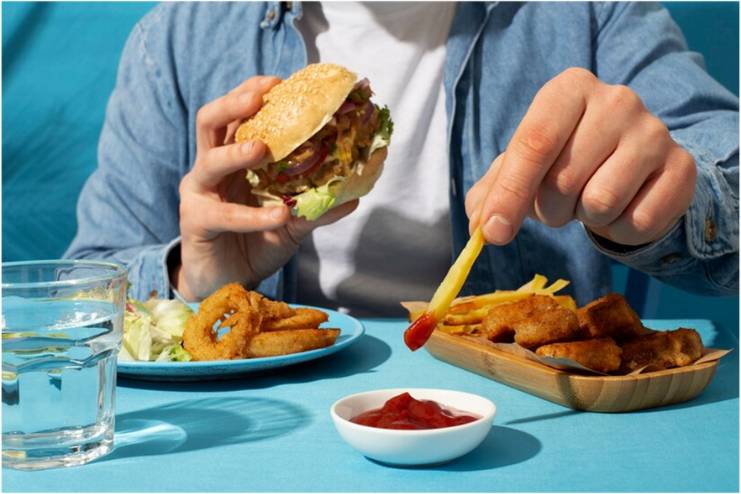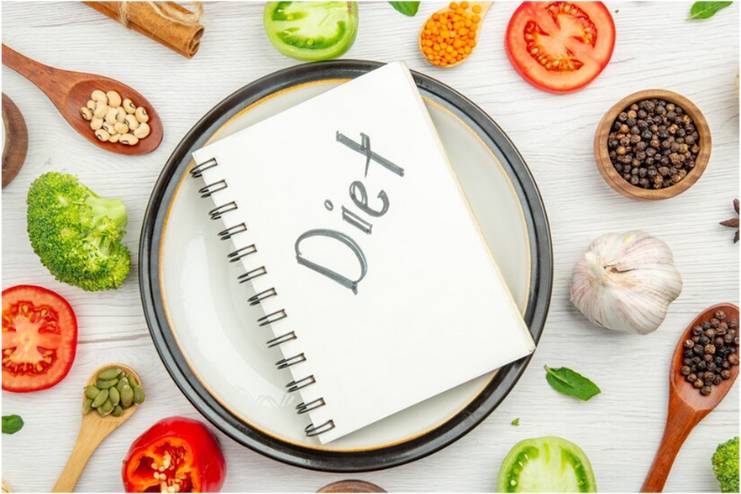Affiliate Disclaimer
Some links in this article are affiliate links. We may earn a small commission if you make a purchase through these links, at no extra cost to you. We only recommend products we find useful to our readersIf you’re on a weight loss journey, you’ve probably heard the buzz about cheat days! They’re like a little gift to yourself while you stick to your healthy eating plan.
Picture this: after a week of disciplined choices, you get to dive into your favorite foods without a hint of guilt. It’s all about balance! These well-deserved breaks allow you to satisfy your cravings and keep your taste buds happy, making your journey feel a little more enjoyable. So, embrace the concept of a cheat day and savor that delicious indulgence like a true reward!
Cheat days do provide psychological relief and even metabolic benefits, but they also carry some risks, like overeating and emotional eating. The question here is: Are they helpful, or do they hinder weight loss?
In this article, we will explore cheat days’ pros and cons, provide tips for effectively using them, and suggest some alternative strategies worth trying. We will also examine their pros and cons to better understand the role of cheat days.
What Is a Cheat Day?

A cheat day is nothing but a planned break from a planned diet, usually taken once a week. There are no strict rules on when these cheat days should be planned. These can be weekly or bi-weekly, depending on your goals.
They allow you to indulge in food you love without adhering to dietary rules.
You usually tend to eat high-calorie foods that are often avoided during regular dieting on a cheat day. These include pizza, burgers, desserts, or processed snacks. Occasional indulgence prevents diet fatigue, reduces cravings, and provides psychological relief.
A cheat day is different than a cheat meal. A cheat meal is a single unrestricted meal that you eat as you wish, while a cheat day is catered to a full day of several unrestricted meals.
Cheat days can make you feel less restrictive and more sustainable. However, to make this work, it’s important to plan your cheat days mindfully and exercise portion control.
Pros of Cheat Days

Cheat days can offer several advantages, particularly for those following strict diets. By providing a mental and physical break from restriction, cheat days can enhance long-term adherence to a healthy eating plan. Here are some of the key benefits:
Benefits of Cheat Days
1. Mental Break and Motivation Boost
Cheat days offer a break from strict dieting, helping to reduce burnout and keep you motivated to stick to your plan.
2. Reduced Cravings and Better Adherence
When you plan a cheat day in advance, it can help manage cravings in the days leading up to it. Knowing that you have a day to indulge can reduce impulsive urges to cheat, allowing you to stick to your plan with greater ease.
3. Enjoy Social Events Without Guilt
Cheat days allow you to participate in social gatherings without guilt, fostering balance and reducing feelings of isolation.
4. Hormonal Benefits for Metabolism
Occasional indulgence can temporarily boost leptin, a hormone that helps regulate hunger, counteracting metabolic slowdown during calorie restriction.
5. Flexibility and Long-Term Commitment
Knowing you have a planned cheat day makes the diet feel less restrictive, promoting better long-term adherence.
Cons of Cheat Days

While cheat days may offer some benefits, they also come with potential downsides. Here are some of the key cons to consider:
1. Risk of Overeating
Cheat days can lead to binge eating, which may undo your calorie deficit and stall progress, potentially causing weight gain.
2. Negative Relationship with Food
Labeling a day as a “cheat” day can create guilt after indulgence, disrupting motivation and emotional well-being.
3. Triggering Disordered Eating
For those prone to disordered eating, cheat days may lead to binge cycles or unhealthy cravings.
4. Reinforces “Good vs. Bad” Mentality
Cheat days often reinforce the idea that certain foods are “good” while others are “bad.” This can create an unhealthy mindset that prioritizes indulgence over balance.
5. Potential to Exceed Calorie Goals
Overindulgence on cheat days may push you past your weekly calorie limit, interfering with your progress.
6. Focusing More on Indulgence Than Sustainable Habits
Cheat days may shift focus from building sustainable habits to just waiting for the next indulgence, making long-term commitment harder.
Tips for Using Cheat Days Effectively

Incorporating cheat days should always be mindful. You must have control over how much you indulge during these days. Here are four strategies you can try:
- Pre-empt & Hold Back: If you’ll be indulging soon, plan ahead and start your day with a light, nutritious meal. Plan more protein and vegetables to avoid overindulging later.
- Stay in Control: On cheat days, choose foods you genuinely want to enjoy to avoid the temptation to overeat.
- Keep Some Good Habits: Practice healthy habits during a cheat day. Stay hydrated with water or herbal teas. Include vegetables in your diet, and continue with your usual exercise routine.
- Think About Portions: Control your portion sizes. Take a reasonable portion of the food you’re indulging in, but don’t overeat.
Alternatives to Cheat Days

Here are some alternatives to cheat days:
Cheat Meals
As explained above, a cheat meal is limited to a meal and not an entire day. It’s usually higher in calories than planned and can be high in sugar and fats. Cheat meals can be used to reward yourself for staying on track during dieting days.
Here are some tips for cheat meals:
- Plan your cheat meal for a time when you’re likely to crave fatty foods, like a weekend or special occasion.
- Be mindful of portion sizes. Be careful not to overindulge.
- How often you have a cheat meal depends on your goals, but some recommend limiting them to once a week or once a month.
- Eat a healthy diet most of the time. Try the 90-10 rule, where you eat healthy 90% of the time and splurge 10% of the time.
Flexible Dieting
Flexible dieting is a sustainable eating plan that lets you eat what you like while still reaching your goals:
- No calorie counting, but you track macronutrients
- No food bans, but you meet your macronutrient needs
- Adjust macros as per your individual goals
- Enjoy foods you like but in moderation
- Not a fad diet
Refeed Days
On a refeed day, calorie and carb intake is controlled after a period of calorie restriction. This is to counteract the negative effects of a calorie deficit, such as increased hunger, lethargy, and a weight loss plateau. Refeed days and cheat days are different. Cheat days are uncontrolled and you eat whatever you crave.
On a refeed day, you eat complex carbs in moderate quantities from whole foods:
- Whole grains
- Starchy vegetables
- Legumes
- Fruits
80/20 Rule
The 80/20 rule lets you eat healthy foods 80% of the time and indulge in less healthy foods for 20% of the time:
- 80%: Eat whole grains, lean protein, low-fat dairy, fruits, and vegetables.
- 20%: Enjoy foods, like pizza, wine, or ice cream, in moderation.
Smart Cheat Foods: Choose meals with some nutritional value, like a cheeseburger and fries instead of a Slurpee and Ding-Dongs.
Conclusion
There are both advantages and disadvantages to having cheat days. They can either help or hinder your weight loss journey, depending on how you approach them. Cheat days provide a mental break and allow you to indulge, but only if you do so mindfully; otherwise, you may be left with feelings of guilt.
Finding balance is essential; mindful eating and cheat days should complement each other. Cheat days ought to be rewarding rather than detrimental. If cheat days do not work for you, consider trying alternatives such as flexible eating or the 80/20 rule.
Experiment with different strategies, make adjustments as needed, and stay motivated to pursue a sustainable weight loss journey that aligns with your health goals.
References
- https://www.healthline.com/nutrition/cheat-meals
- https://primewomen.com/wellness/nutrition/diet-cheat-day/
- https://maysimpkin.com/cheat-day/
- https://www.healthline.com/nutrition/cheat-meals
- https://www.healthline.com/nutrition/flexible-dieting
- https://www.healthline.com/nutrition/refeed-day
- https://www.webmd.com/diet/ss/slideshow-80-20-weekend-diet
- https://www.bistromd.com/blogs/nutrition/healthy-cheat-meal-ideas
In this Article





















